Think Week: A Guide to Achieving Mental Clarity
Work-Life Balance for the Entrepreneurially-Minded
Juggling roles in SaaS startups and freelancing has always blurred the lines between my work and personal life. Both environments grant high freedom yet demand immense responsibility. Either way, I would be doing something I chose and enjoy.
Some startups offer “take as many days as you want” vacations and I was in a such a company at this moment. In such situations, vacations can seem counterintuitive though. Why pause something you’re passionate about?
Traditional leisure vacations, like beach resorts with all-inclusive food, didn’t sit well with me. I tried it before, but two days in, I felt quite depressed. The idea of a “do-nothing” vacation was not for me. So what should I do with my vacation days?
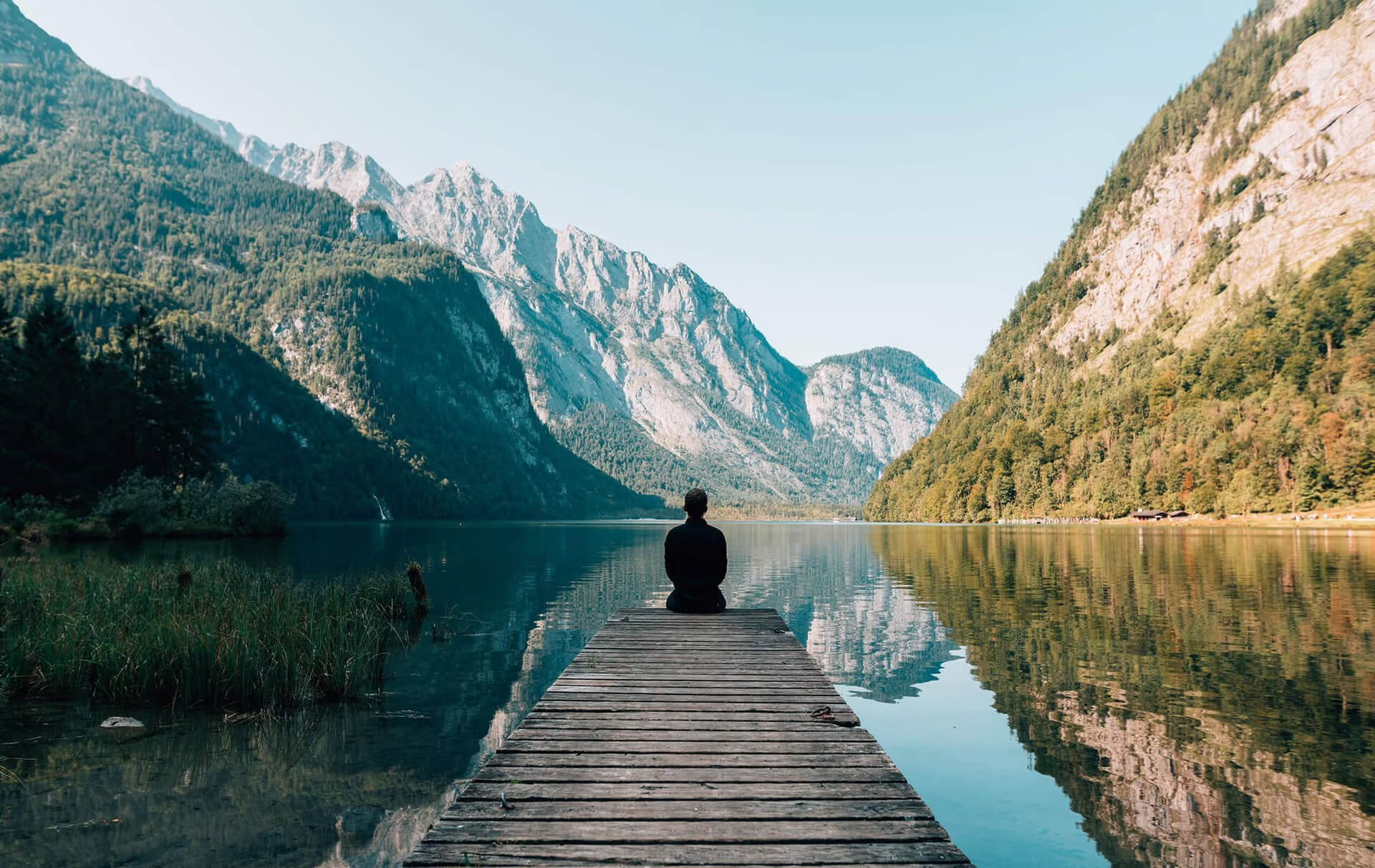
Finding Distraction-Free Time
Let’s change perspective and look at my regular weekends. Somehow, I created this habit of a personal growth Saturday — I would almost always find myself in a coffee shop, indulging in reading, exploring forums like Hacker News, listening to a podcast, organizing my personal Notion, pondering over work challenges or developing my personal ideas.
These moments, free from work deadlines and dictated by curiosity, resemble Google’s original “20% rule”, where employees devote 20% of their time to personal projects. Without these unstructured, work and personal growth oriented weekends, I would probably slowly decay in my long-term progression. I would only either work (on company & client time) or decompress with leisure activites that don’t bring me any long-term benefit.
For me, a Think Week mirrors an extended, undistracted weekend, a period to delve into work subjects without external pressures. Anyone who struggles with finding time for this kind of focus, should really consider them.
Especially for co-founders who find themselves with even busier schedules, asking their other co-founder to take over for a week and taking a step back to reflect on things could prove to be tremendously valuable.
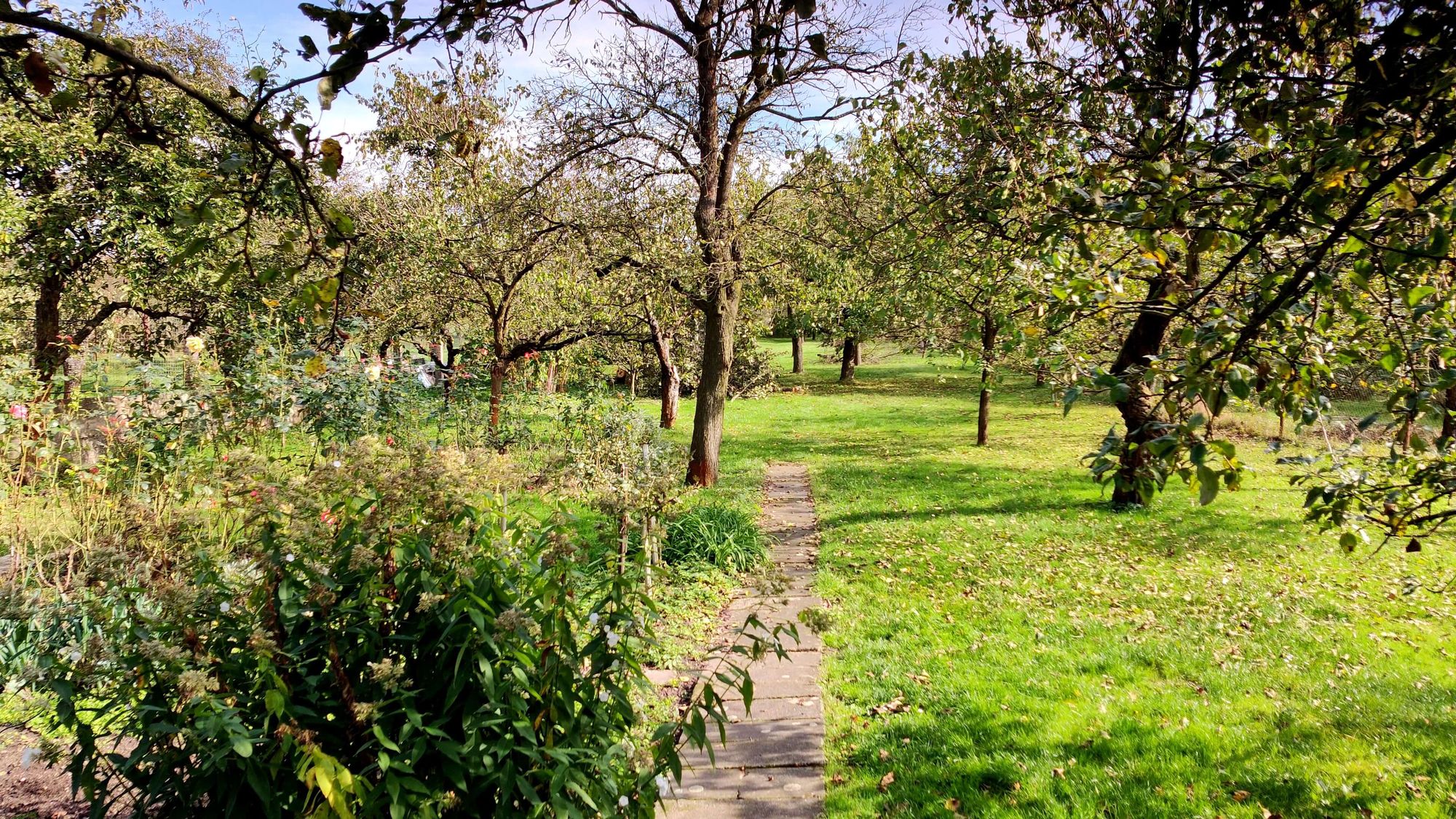
The Timeless Essence of Think Weeks
The concept of retreating from the world for introspection and clarity isn't a new invention of the modern age. It's a practice deeply rooted in human history, with many drawing inspiration from the likes of Henry David Thoreau. Thoreau's retreat to Walden Pond was a two-year expedition into solitude, where he sought to "live deliberately." This extended period of introspection culminated in his seminal work, "Walden," a philosophical exploration of life, nature, and human existence.
Fast forward to our modern era, luminaries like Elon Musk and Arianna Huffington recognize the importance of taking time for deep contemplation. Though the exact durations of their retreats aren't publicly detailed, the principle remains the same: a dedicated time away from the usual hustle to reflect and recharge.
The Distracted Modern Mind
In "Deep Work," Cal Newport emphasizes the invaluable nature of uninterrupted focus in an increasingly distracted world. As our lives become more intertwined with the digital realm, the incessant pings of social media notifications, emails, and instant messages have fractured our ability to think deeply. Newport posits that cultivating periods of profound concentration, akin to Think Weeks or even Thoreau's longer retreat, is not just beneficial but essential for producing high-quality work in today's age.
The underlying implication of these retreats, regardless of their length, is significant in the modern world. As we grapple with the relentless pace of life and the constant barrage of digital distractions, intervals of reflection become paramount. They serve as a counterbalance, offering us a chance to recalibrate our perspective, foster creativity, reduce stress, and enhance overall well-being.
In essence, whether you choose a week or longer, the depth and intentionality behind a Think Week carry forward the tradition of seeking clarity in solitude, a tradition as old as human introspection itself.
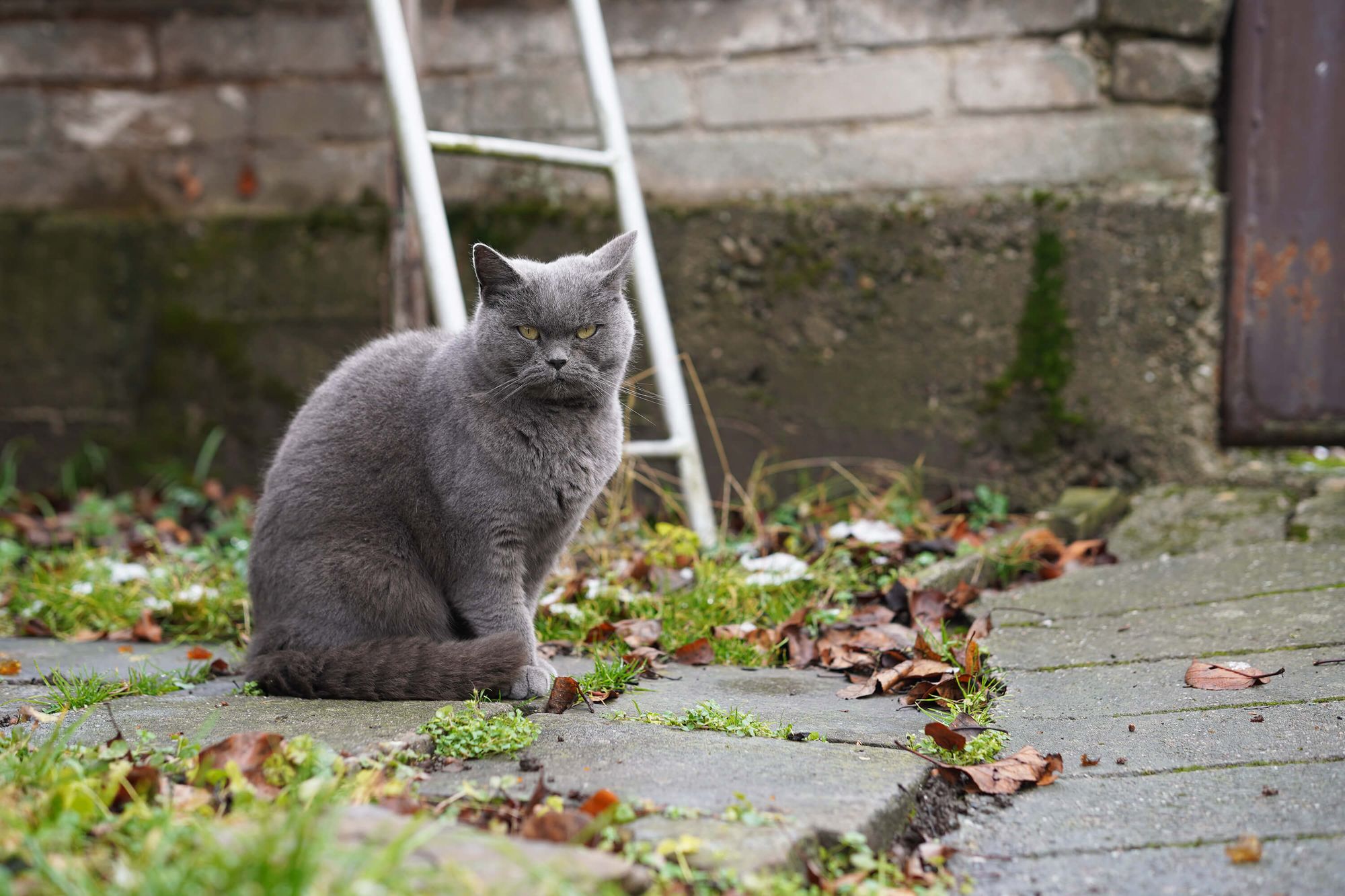
Setting Expectations
I envisioned my Think Week as an intense deep dive into a number of topics. I planned to comb through every resource on SaaS growth, from books and e-courses to articles. Plus, throw in a sprinkle of personal productivity and goal-setting. I honestly thought I'd emerge, a week later, with an aura of enlightenment, à la Hugh Jackman in The Fountain.

The Reality of a Think Week
Turns out, a week isn't that long! Free from the usual distractions, I thought I'd have all the time in the world. Nope.
Unless you can carve out a longer period than a week. Prioritization is the key. I mostly delved into a video course about SaaS growth and a book about changing a personal psychology. It's one thing to skim through multiple books, but to truly absorb and implement their teachings? That takes time.
Oh, and I also made room for some relaxing stuff - picking walnuts, strolling in the woods, hopping on my motorcycle, and enjoying an episode a day of a favorite TV show. I tried to keep input of information other than what I decided to think about beforehand minimal.
Major Takeaways
I was surprisingly zen during the week, a state I maintained throughout. Early mornings, meditation, and a touch of nature did wonders. It was really quite eerie feeling.
I also revisited material I had already read before and found new insights that surprised me. This realization underscored the importance of mental clarity. A typical workday can cloud one's perception of reality. It's like the extra mental clarity can now enable you to see higher-level connections and notice more details.
But the real win? A transformative shift in both my professional and personal plans, and newfound clarity in my purpose.

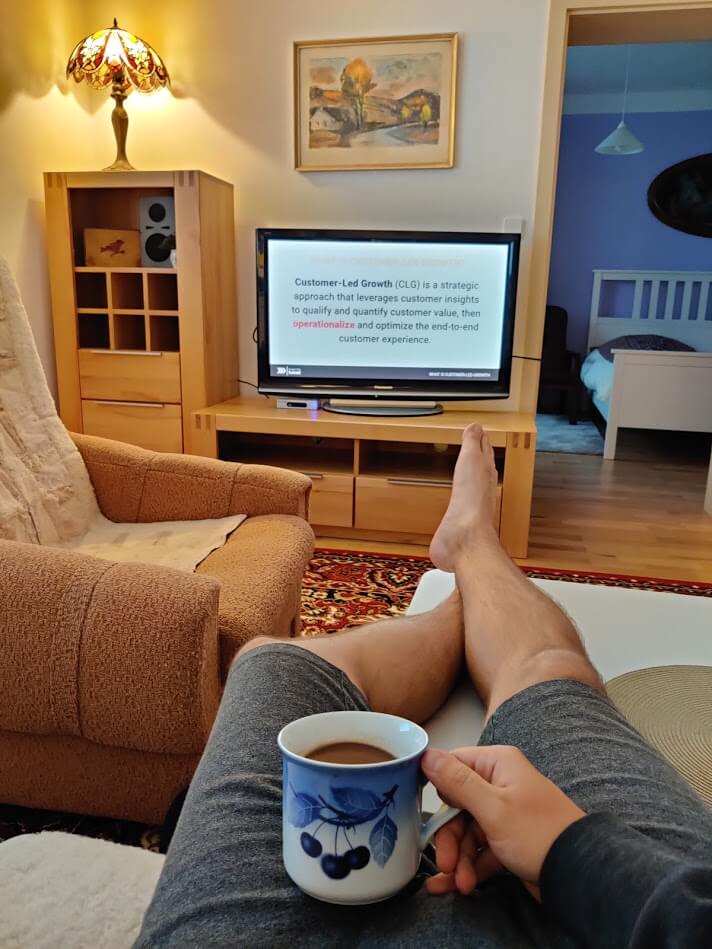
Each morning I meditated in the chilly garden | I'd get cozy and watch the video course on TV
Summarizing the Benefits
During this transformative week, I gained valuable insights and benefits:
- Calmness: The blend of early risings, daily meditations, and nature's embrace allowed me to tap into a profound state of relaxation.
- Fresh Perspectives: Revisiting previously read content helped me understand complex subjects better. A clear mind makes all the difference.
- Strategic Reshaping: The week of reflection and learning helped me recalibrate my professional and personal strategies. I now have greater clarity in my overall purpose and goals.
In essence, the Think Week is about holistic personal and professional growth.
Recommended Resources
For those keen on a deeper dive, I've listed some resources I liked below. Articles offer hands-on advice, while YouTube videos give you a glimpse into the emotional journey.
Articles:
- What I Learned Taking a Bill Gates-Inspired “Think Week” by Chris Bailey
- How to do a Think Week Like Bill Gates by Runaway Suitcase
YouTube videos:
- How well are you investing your time This week by Charlie Rose
- The Best Way to Reset: The Bill Gates Method by Nathaniel Drew
- I Tried Bill Gates Think Week! by Hallden
- THINK WEEK - What is it, why do one, and how to do it? by Suff Syed
Netflix's Bill Gates documentary:
- Inside Bill's Brain: Decoding Bill Gates at Netflix
- Why Bill Gates Spends One Week A Year Just Reading a clip from the documentary
How-to infographic:
- How to do a Think Week Like Bill Gates by Runaway Suitcase
Tips for a Successful Think Week
Ready to embark on your own Think Week? Here's a quick guide to set you up for success:
- Full Disconnection: Dedicate a week where you're completely off the grid – no emails, no calls, just you and your thoughts.
- Choose an Isolated Setting: Opt for a serene location nestled in nature. For me, a family house in a rural town with a garden worked wonders.
- Pre-Plan and Minimize Distractions: Ensure your essentials, especially meals, are sorted in advance. The fewer distractions, the better.
- Pick a Theme or Topic: This could be professional, personal, or a blend of both. Have an array of resources - books, e-books, podcasts - on hand to fuel your thoughts.
- Establish a Routine: For me, a 7 am start, followed by meditation and reading, set the tone for the day. Find what rhythm works for you.
- Set Ground Rules: Limiting online interactions can be beneficial. I permitted myself a 60-minute daily internet window, but choose what suits you.
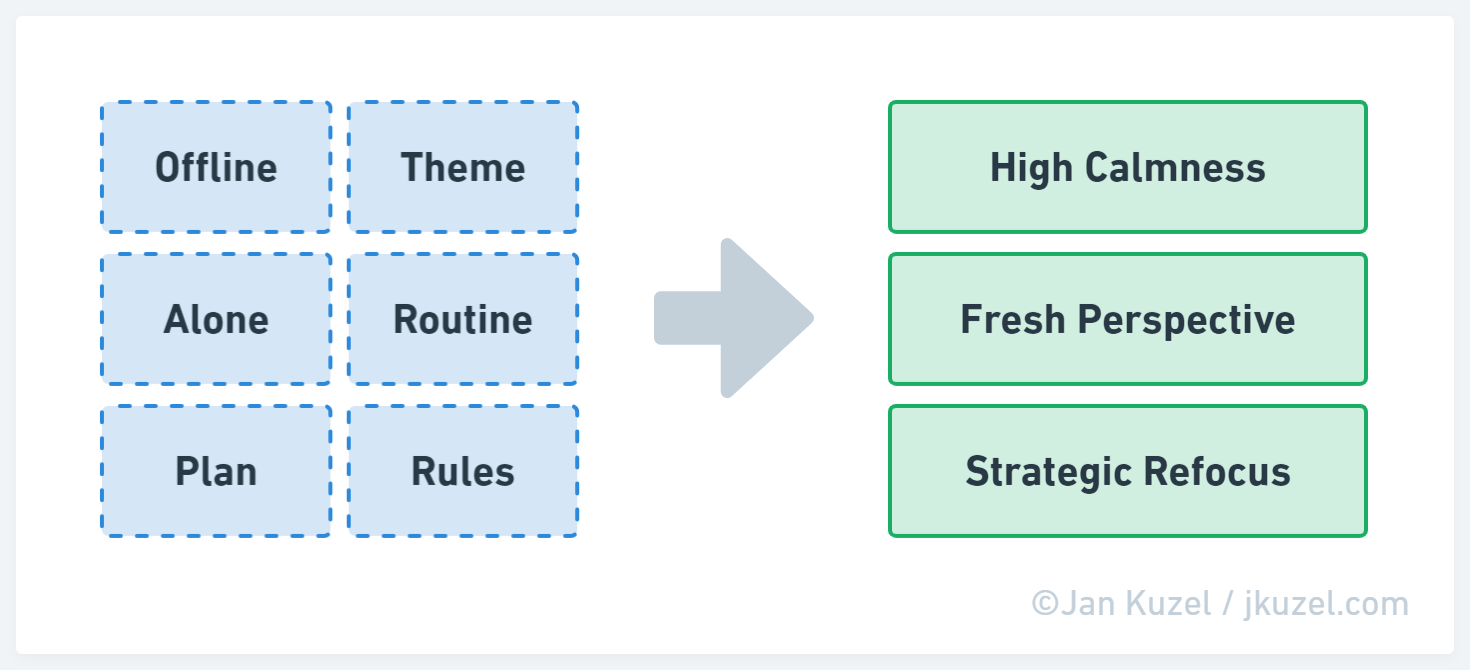
Reflection vs Consumption
While I'm not dismissing the rejuvenating allure of a holiday filled with entertainment or adventure (last year I was in Iceland and it was out of the world experience), when it comes to destressing and recalibrating my life's compass, the Think Week takes the crown.
Vacations with exploratory travelling in my opininon don't really help with rest, sure they're fun and bring new perspectivces which is valuable, but they are about adding new experiences, not defragmenting what we already have in our brain.
It's similar for example with playing videogames. Sure games are fun, but I am convinced they only add to stress. Playing a complex RPG is very similar to working, your brain will get burned out on lot of decision-making processing and sustained focus — the only difference is that videogames are very engaging and reward us 100x more often than actual work with sense of achievement, so we don't mind "working" on them. They're not the ideal activity to reduce stress though, they're a replacement for sense of achievement and exploration.
Final Thoughts
These days with the amount of information available to us, most people are probably in a constant state of compulsive consumption, espectially the entrepreneurially-minded, always curious and hungry for knowledge individuals like me.
Had I not taken this time out, my decisions, both personal and professional, would have followed a different trajectory. Recognizing the profound impact it has had, I will be utilizing Think Week a again.
Whether you're seeking clarity, a change of pace, or a new direction, I'd urge you to give the Think Week a shot. It might just lead you down a path you never knew you needed to walk.

Member discussion